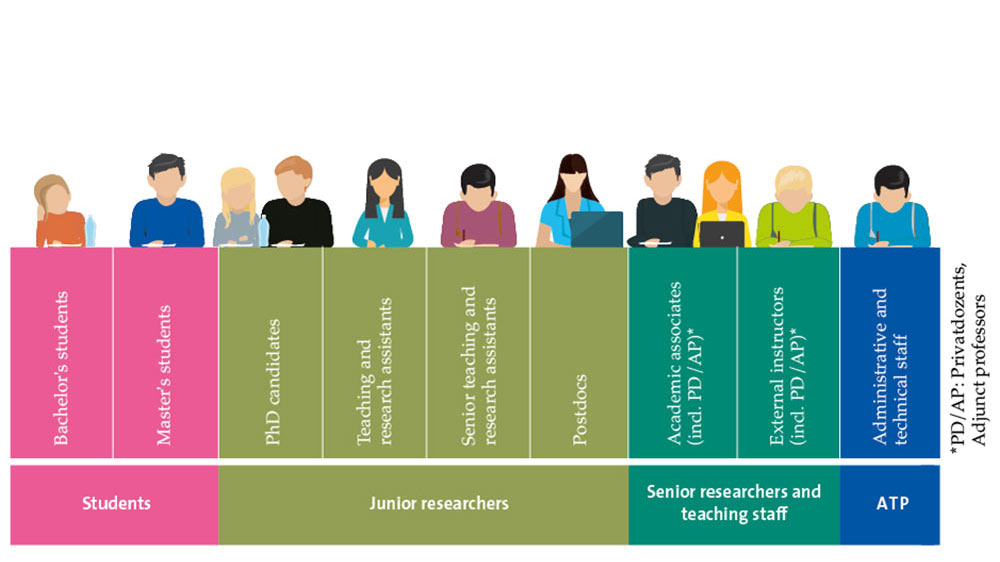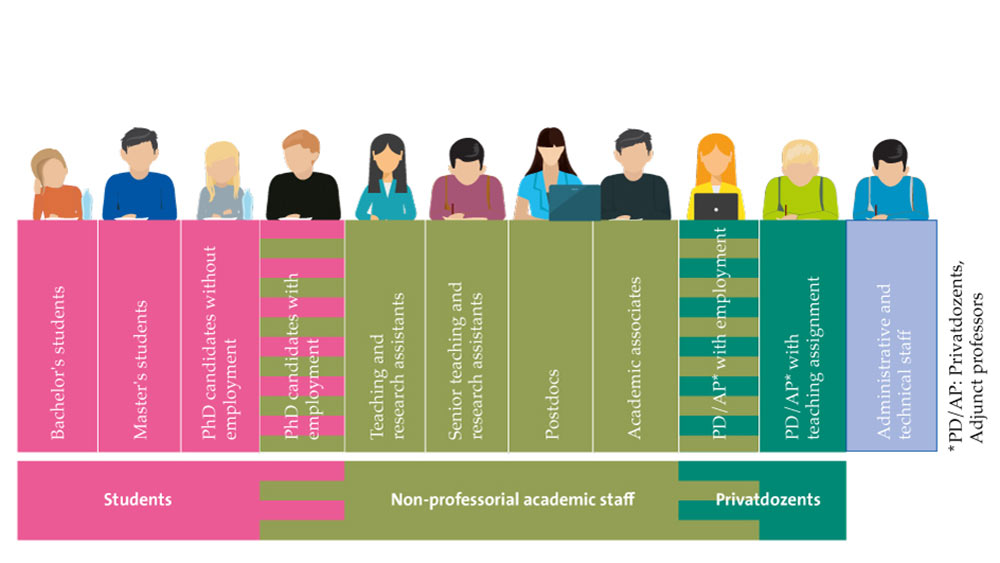Navigation auf uzh.ch
Navigation auf uzh.ch

The University of Zurich is currently facing the consequences of the COVID-19 pandemic and has been implementing emergency measures on an ongoing basis to overcome the challenges brought on by this exceptional situation. The Executive Board and the UZH community have come together to help contain the pandemic and ensure that students can complete their studies as usual.
Times like these illustrate the importance of having smoothly running organizational and management processes in place. With this in mind, the University of Zurich would like to announce some long-discussed changes to the University Act and the University Statutes that will ensure the continued efficiency of UZH as it heads into the future. The Cantonal Parliament of Zurich passed a revised version of the University Act in September 2019, and these amendments are now set to enter into force, along with some adjustments to the University Statutes. The changes include updates to university representative bodies, the remit of the Extended Executive Board as the University’s supreme academic body, the appointment of adjunct professors and the roles of deans. An overview of the new regulations that will take effect on 1 April 2020 is available on this site (LINK).
The most significant changes to the University Act involve the bodies represented in the Extended Executive Board of the University. Going forward, there will be four representative bodies with voting rights at UZH:
Now that administrative and technical staff (ATP) are recognized as a representative body with voting rights, all employees at UZH will be able to exercise their co-determination rights at the University. Previously, ATP delegates could participate in meetings of the Extended Executive Board and other committees in an advisory capacity only. Administrative and technical staff at UZH work in a diverse range of professions, including but not limited to IT and tech specialists, engineers, lab technicians, custodians, lawyers, bookkeepers, animal caretakers, HR specialists, warehouse workers, biomedical analysts, gardeners, graphic designers, financial experts, architects, multimedia specialists, administrative assistants, librarians and many others. These employees provide professional services that keep the complex university infrastructure running and evolving, which provides an indispensable framework for teaching 26,000 students and housing countless research projects at 150 departments and institutes.
“I'm glad that administrative and technical staff at UZH will finally have a say when it comes to shaping the future development of the University,” says President ad interim Gabriele Siegert. “It’s important and welcome for members of the UZH community to take an active role in managing university affairs. Our administrative and technical staff can now also contribute their knowledge, experience and ideas in UZH’s various committees on equal footing. This is a win for the University as a whole.”


Along with administrative and technical staff now receiving equal representation, the representative bodies at UZH will also be reorganized as of 1 April. The new structure aims to be more consistent and assigns membership based on the role and career phase of each UZH member. This ensures that people with similar concerns are brought together in the same representative body.
The students’ representative body will no longer include doctoral students, who will now be assigned to the junior researchers’ body along with teaching and research assistants, senior teaching and research assistants, and postdoctoral researchers. The previous representative body for privatdozents will be replaced by the new body for senior researchers and teaching staff, which will also include adjunct professors employed in a teaching or research capacity as well as established instructors and academic staff. The professors advocated against the formation of their own representative body, as they already have other platforms for presenting their interests and concerns at the University. The two graphics above show what changes will occur as a result of the new structure.
There will be a new election procedure for the representative bodies for junior researchers, senior researchers and teaching staff, and administrative and technical staff. In accordance with the new election rules, the first election will take place in June 2020. Elected representatives take office on 1 August in the same year of the election.
Various associations are also affected by the upcoming restructuring. While the VSUZH (University of Zurich Student Association) will remain active in representing student interests, the remaining associations will be restructured. You can read more about the reorganization here.
One of the new regulations that enter into force on 1 April concerns the role of deans. The new rules were added to the University Statutes as part of the two-year Governance 2020+ implementation program, which was launched in October 2018 with the aim of increasing the faculties’ organizational and management responsibilities and enhancing the strategic management capabilities of the Executive Board of the University.
The changes will grant more responsibility and autonomy to the individual faculties – under the leadership of their respective deans – for managing their core missions of research, teaching, continuing education and services. In parallel, the Executive Board of the University will undergo a realignment to focus more strongly on the framework conditions and strategic development aims established for UZH as a whole.
The new governance structure at UZH will be implemented in two stages. The first stage, which already took effect on 1 August 2018, involved the restructuring of the Executive Board and optimization of the remits of the Offices of the Vice President. (For more information, please refer to this UZH News article from August 2018.) The second stage will take place in several steps as part of the Governance 2020+ program and will conclude by the end of 2020.